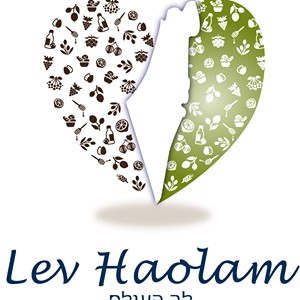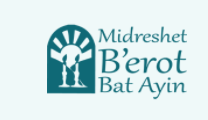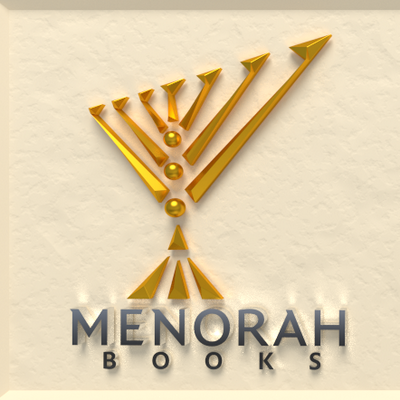Picture by Hodaya Peek-Weiss Rue in Garden at Rimon Farm ISRAEL
Rue is considered as a protective herb obtained from Ruta graveolens and holds extended annals for its medical use. Earlier in history this herbal medicine was used to ward off poisons and parasites and for protection against pestilence. It also has a spiritual benefit of warding off the “evil eye” (ayin hara) or known as the gaze of curse and also the curse of evil speech against a person. Rue is a very rare essential oil to obtain. Much like Lemonbalm it takes a lot of material to create this essential oil.
In Jewish Sages writings, there are many plants mentioned that help to protect from Ayin Hara, and one of them is Rue. Rue Protects especially when one carries the רוּדָ ה/ruda (Rue-Ruta) herb, which is very potent and the smell seems to detour the negative intentions.
It is said that Balam who wanted to curse Israel was standing in a patch of Ruta and could not speak evil against Israel. G-d put him in the exact spots where the Rue plant flourished. Balam tries to curse Israel from two different location, but instead they are blessed. Both locations still today grows wild Rue that is native to Israel. See Number 23:25.
It is proper to follow G-d’s advice in the Torah advice, and it is included in the general rule of, “…and you shall vigilantly protect your lives” (Deut- Devarim, 4:15). Likewise, there is a protective also a wise text in the Talmud, to shield a person from his own evil eye: He should look at the left side of his nose (Berachot 55b).
Offering a certain prayer “Ma tovu” from the Torah (Number 24:5) which we will not fully covered here, however it is necessary to help yield fruit and is more important than everything else, for our G-d has compassion. He listens to the prayers of every mouth and saves His people Klal Yisroel from Ayin Hara and other kinds of evil. Today is especially true as the world moves against G-d people.
 Ma tovu Prayer (Num 24:5)
Ma tovu Prayer (Num 24:5)
Like many Mediterranean plants, Rue has Biblical connections. Harold Moldenke, in Plants of the Bible, points out that plants that were cultivated in gardens were subject to being taxed or tithed by the Romans. And, since in the Jewish Hebrew texts Rue is not taxed, it may be that even though it was used in the kitchen, it was cultivated from the wild. In which case, it may have been the more common African Rue or Ruta chalpensis that was being used. By Second Temple period, Rue was being cultivated and taxed especially during Roman Rule simply because it was native to Israel and the Romans taxed anything native to the Holy Land; and since Ruta graveolens was not as prevalent in the wild as it once was, it is thought that this may be Rue of Second Century Gardens.
Found in the Holy Land growing wild all over. This one is native to Israel and the Middle East. On the market, you will find a Ruta oil from Morocco but there is nothing like it from the Holy Land of Israel where its Biblical roots are found.
It was in ancient times a law existed to always have ruta in your garden. Israelites, Greeks, Arabs, and Romans used Ruta as a trading currency. The Romans would try to prohibit Jewish people from growing the herb but the Sehedrian made it a Jewish law and a mitzvah to grow it so the Romans had to tolerate it. There is even a text stating it was also used as a tithe to the Temple “For you will tithe mint and ruta and all manner of herbs”. Yob (Job) was said to use Ruta along with Inula Viscosa to heal his skin and to remind him to never have regrets. Ruta/Ruda was a very valuable herb to Israel.
Una Matica de Ruda” is a traditional Sephardic wedding song. Ruda, Ruta, is often used as a female name meaning “friend. Also, the root of Ruth is predominantly a girl name of Hebrew origin, meaning “friend,” “friendship,” or “compassionate friend.”
The name is the central character in the Book of Ruth in the Bible/Tanach, which is one of only two books named after a woman. The Biblical Ruth was an ancestor of King David and the daughter-in-law of Naomi. After the death of her husband, Ruth accompanied her mother-in-law back to Bethlehem when she famously spoke the words, “Where you go, I will go.” (Ruth 1:16) And she did so without regret. The flower Ruta is associated with Ruth because Ruta also means “without regret”.
Spiritual benefits are dispersed negatively, ayin hora, and help keep away evil speech. The Sages said, “A man who is afraid of Ayin Hara should say, ‘I am from the offspring of Yosef, whom the evil eye has no control over…’” (Berachot 55b). It is good for a person to recite this daily.
Rue blends well with Benzoin, Bay, Fennel, Chamomile, Myrrh, Frankincense caterri, Frankincense Sacra, Frankincense Rivae, and Frankincense Neglecta.
- It is used in facial care, massage, relaxing and perfumes. Can be used on a diffuser necklace by adding just one drop to a clay diffuser, lava stone bracelet, or carried dried form in a neckace or bracelet lockets.
Rue is also called herby grass or garden rue which is widely used in the manufacturing of perfumes and cosmetics. It is also used to make alcohols, herbal vinegars and flavorings. It is used as a treatment for gout, glaucoma, rheumatism, itchy skin, varicose veins, hemorrhoids, warts, varicose veins and wounds. It also relieves fainting spells, contusions, headaches, compression wounds, convulsions, high blood pressure, anxiety, toothaches, epilepsy, anxiety and stiffness.
| Rue essential oil facts and benefits Quick Facts | |
|---|---|
| Name: | Rue essential oil facts and benefits |
| Origin | Israel |
| Colors | Pale yellow, orange, amber |
| Health benefits | Prevent growth of fungus, Acts as an antidote, Eliminates bacteria, Keep insects away, Lowers pain. Spritual benefits are disperses negative energy,ayin hora, and keeps away evil speech from your midst. |
This oil has main components such as Butanone, Bergaptene, Nonyl Acetate, Nonaone, Undercanone, Psoralen and Xanthoxin. Rue has other various names such as Herb of Grace, Herbygrass, Garden Rue, Bible Rue, Egyptian Rue, Judean Rue, Countryman’s-treacle, Herbe de la Rue, Herbe de Repentance, Herbygrass, Ruda, Raute, Ruda de Castilla, Rue des Jardins, Rue Officinale, Jordon Rue, Ruta Grav, Rue Puante and Rutae Herba.
Interesting note Rue is one of the ingredients used in the Vinegar of Four Thieves. The four thieves were a family of perfumers (who knew their herbs) who robbed the dead during the Black Plague. As the tale goes, they were protected by this antiseptic concoction of Vinegar and Herbs. It was probably more the antiseptic qualities of the other herbs, Rosemary, Lavender, Clove, Cinnamon, Sage and Mint that actually gave the vinegar its punch. But, the pungent aroma of the Rue must have added that odor of truth to the mix. Indeed, the species name graveolens means strong smelling and because it is so powerful against poision, germs, and virus’ it would have been a wise choice to add it to the blend.
The Romans cultivated this plant and carried it with them when they visited prisoners, because they believed it would ward off the “evil eye” which they picked up this understanding from Jewish Culture and lifestyle. While invading the Jewish Homeland Eretz Yisroel they taxed the herb and required a tenth of the crop to be given to Roman Goverment because it was a native plant which grew abundantly in Israel. Sages tell us that it was so miracleously abundant that it was not a painful matter to give so much to the occupying goverment forces.
Meanwhile, the Chinese used it to counteract negative thoughts or wishes. Celticmedicine healers said that rue provided a defense against evil spells and could be used to promote healing also. In addition, rue was sacred to the Egyptians, and Caledonians, who believed that it was a gift to be treasured and be cultivated with care because they had so little of it.
Other Spiritual healing properties:
- It provides protection. One of the most widely-known benefits of rue is that it creates a protective field around the person who plants this herb.
- It attracts positive energy. Sometimes, the plant causes the right person to come into our lives, whether in love, family, or at work.
- It’s curative. Rue is beneficial in the treatment of various diseases and ailments, as we’ve explained above.
- It combats negativity (ayin hara). Finally, if you’re living in an environment with bad energy, you can bring in a little rue to absorb the negative energy that’s disrupting your home. It can also discharge negative energy towards someone who is being rejected by community, family or co-workers.
Rue is a wonderful overall plant of beauty for any garden
See our essential oil here


















